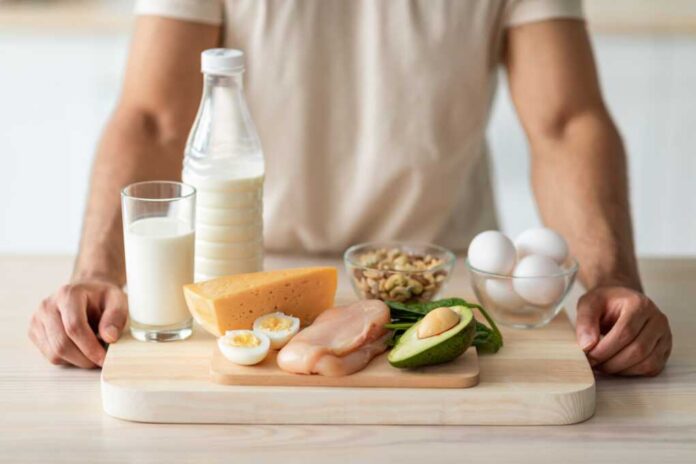
Protein is one of life’s building blocks for strong bones, proper immune system function, and keeping your testosterone levels up. However, there are different misconceptions about how this nutrient works. This article dispels the myths and provides facts on how protein affects your body.
Protein Deficiency is a Thing
Despite the hype about increasing your protein intake, studies show that most Americans eat more protein than required. According to the Dietary Reference Intake report, adults must eat at least 0.8 grams of protein per kilogram of body weight daily. This is approximately 60 grams for the average lightly-active, 165-pound American male. It means it’s difficult to be protein deficient if you eat a varied diet.
While through protein deficiency is almost unheard of in America, most males can benefit more from eating more than the base requirement for macronutrients to build and maintain lean mass.
Getting Enough Protein Matters More Than When You Get It
It’s vital to spread your protein intake throughout the day to make it more effective. This is because there is a limit to how much protein you can optimally use at once while the rest gets spilled over. According to a University of Texas study, eating 90 grams of proteins in one meal offers no greater muscle-making benefit than eating a much more modest 30 grams.
Proteins Can’t Make You Fat
Popular pro-protein diets such as Paleo could make you believe eating heaps of macro-nutrients is an ideal way to lose weight. However, excess calories beyond what your body needs for its metabolic process can get stored as body fat.
Eating Protein Automatically Increases Muscle Mass
While your body needs the amino acids in protein sources to boost and repair muscle mass, they also need a reason to grow. This includes resistance training, strength training, and an exercise program.
You Can’t Build Muscle On Plants
According to researchers, it doesn’t matter if the protein source comes from a plant or an animal as long as you meet your protein requirement.
You Need to Eat Protein Immediately After a Workout
After exercising, your body is primed to process amino acids. However, you don’t need to take protein immediately after working out. Your body can still recover after the workout using the protein and other nutrients you eat throughout the day.
You Only Need to Eat Lean Protein
Lean protein sources such as pork tenderloin and skinless chicken breasts are preferable diet options as they contain less saturated fat than marbled ribeye. However, there’s no harm in enjoying protein sources that are slightly higher in fat as long as they align with your daily total fat and calorie budget.
Conclusion
There are numerous misconceptions about protein that could make you use it incorrectly.
However, the facts in this article will ensure you can use it to help your body function properly.



















